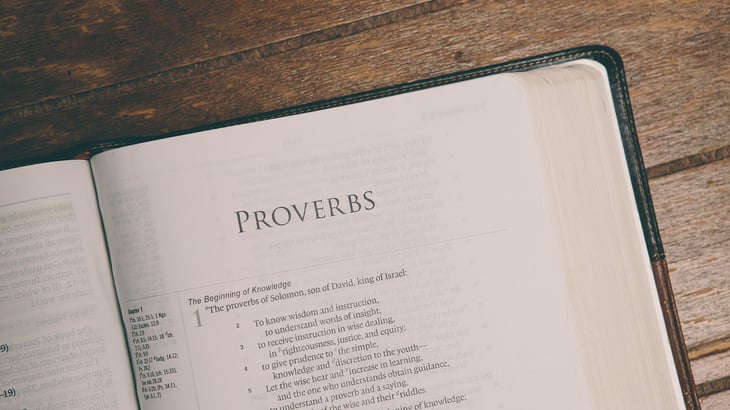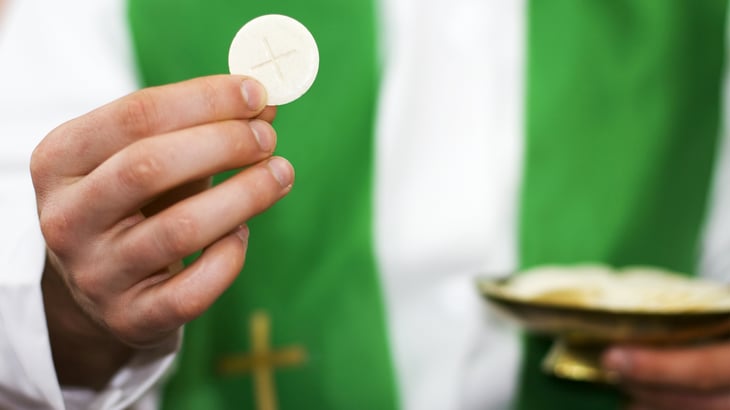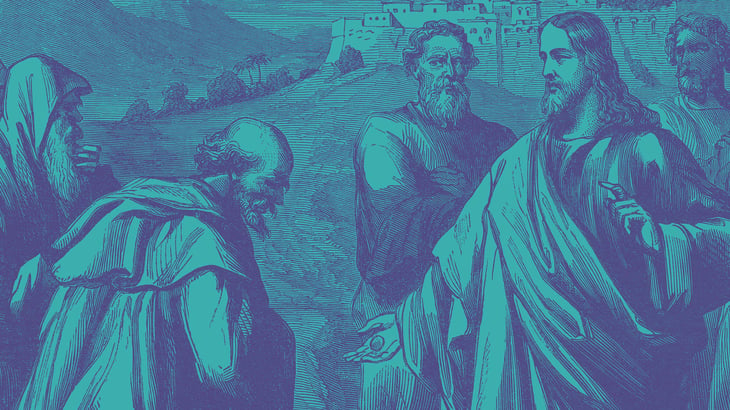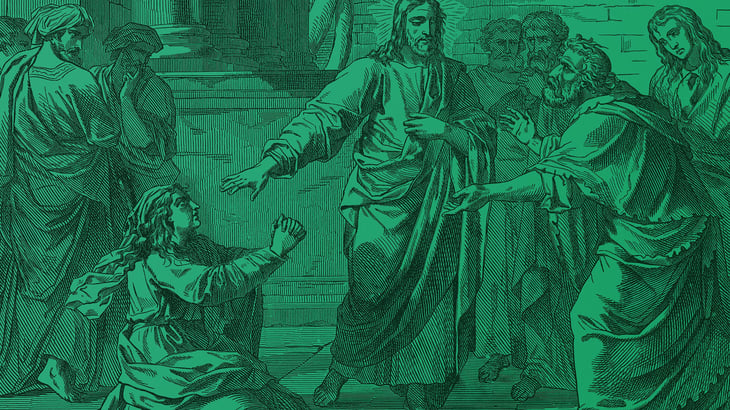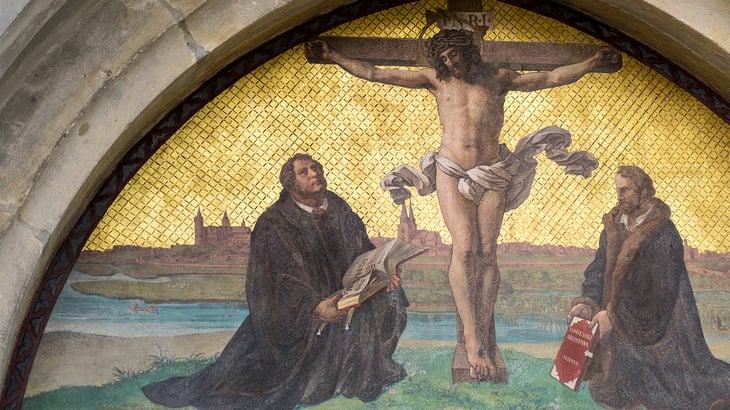An Interview with Rev. Dr. David Coe on Provoking Proverbs
Have you ever looked at the Book of Proverbs through the lens of the Ten Commandments? A new Bible study, Provoking Proverbs, guides you through these beautiful, insightful works of the Bible to help bring new light to the Ten Commandments and how they are woven into each part of God’s Word. Elizabeth Pittman, host of the Concordia Publishing House Podcast, sat down with Rev. Dr. David Coe, the author of this new study, to speak about the new book and his favorite Proverbs. Read below to see part of his interview and listen to the entire podcast to hear the full discussion with Coe.
Luther's Catechism Series: The Lord's Supper
Every Sunday, congregants listen to their pastor speak the Words of Institution at the celebration of the Lord's Supper. What is the connection between communion and the Word of God? Read below to see Albrecht Peters' interpretations on Luther's Catechism concerning the Verba testamenti and the Lord’s Supper.
Digging Deeper into Scripture: Romans 13:1–10
Have you ever been wronged by someone? Have you ever disagreed with the laws or decrees of your local community or the state in which you live? Almost everyone has likely experienced at least one of these scenarios at some point. In Romans 13, Paul reminds the Christians in Rome how to conduct themselves, forgive others, and find ultimate peace through Jesus Christ.
A Comprehensive Approach to Teaching about Stewardship
In my congregational experience, stewardship is either preached on too particularly or not nearly enough. Some congregations have several weeks of sermons and Bible studies dedicated to the topic. Other congregations never so much as mention the concept.
Some congregations attempt to move past stewardship as merely a fiscal term by brandishing the alliterative tagline “Time, Talent, and Treasures.” The idea behind this is that being a steward is about more than giving money, which is true and admirable. I wonder, however, if this threefold definition of stewardship is still far too restrictive.
What I hope I can provide in this brief piece is twofold: first, a more complete understanding of stewardship; second, a way for pastors to use upcoming lectionary readings to highlight holistic stewardship.
Digging Deeper into Scripture: Matthew 15:21–28
The Gospel reading of Matthew 15:21–28 shares how God's salvation plan is unlimited. Although the Gospel is primarily for the Jews, it is also for the Gentiles. Through the confession of sins and belief in the saving work of God’s son, Jesus Christ, both Jews and Gentiles receive His gift of salvation.
Luther’s Catechism Series: The Sacrament of Baptism
Baptism is a wonderful gift from our good and gracious God. It is the washing of regeneration and renewal in the Holy Spirit by which we are made the children of God, given the gift of faith, forgiven our sins, and claimed for all eternity. Read Luther’s insights on Baptism from Commentary on Luther’s Catechisms: Baptism and the Lord’s Supper below.
Martin Luther on the Distinction between Law and Gospel
For the first time in English, a truly scholarly translation of Luther’s most famous disputation, referred to as The Antinomian Disputations, is available as part of the newest volume in the ongoing Luther’s Works, Volume 73. Read an excerpt from the introduction below about the doctrines of Law and Gospel.
What Does the Bible Say About Blame?
The blame game is a consequence of living in a sinful, broken world. Through Confession and Absolution, we walk in God’s light as His forgiven children.
Luther’s Catechism Series: The Fourth Petition of the Lord’s Prayer
Every Sunday, as a community of believers, congregations say the Lord’s Prayer out loud. Luther goes into detail about what each petition of this prayer means, giving believers an in-depth understanding of exactly what it is they’re praying for.
The Fourth Petition, “Give us this day our daily bread,” thanks God for everything that He gives His creation, including food, drink, house, money, and so on. Read an excerpt from Albrecht Peters’s Commentary on Luther’s Catechisms: Lord’s Prayer to see how God gives humanity goodness through Christ daily.
Digging Deeper into Scripture: Matthew 13:24–30; 36–43
This weekend’s passage from Romans amplifies Jesus’ parable of the weeds. In the same way that the servants in the field desire to pull weeds, Christians on earth wish either for unbelievers to be subdued or for Christ’s return to take the faithful to heaven. Paul sympathizes with our “sufferings of this present time” (Romans 8:18) that Christians have “eager longing for the revealing of the sons of God,” and says that we are “groaning together.”
